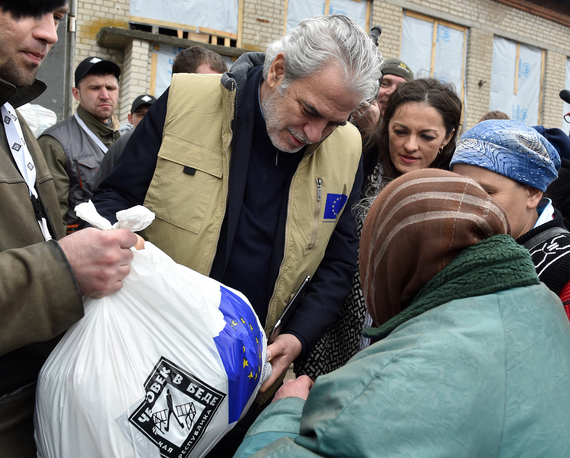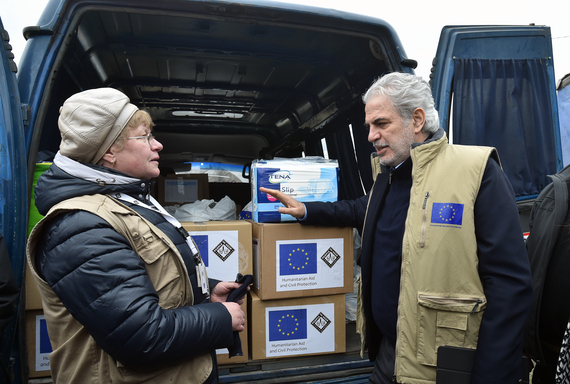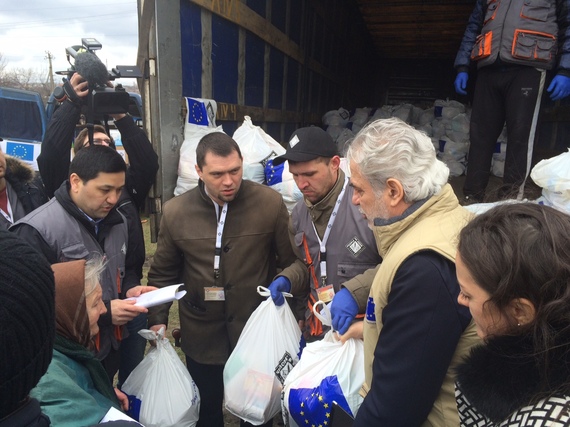Today I am visiting Ukraine for the third time since I started my mandate as European Commissioner for Humanitarian Aid and Crisis Management well over a year ago. My trip to eastern Ukraine comes at a time when the ongoing human suffering in the region is out of the spotlight of the international media.
We cannot allow Ukraine to become a forgotten crisis.
The humanitarian situation remains serious. Over 3 million people are in need of humanitarian assistance. One year after the signing of the Minsk Agreements, peace and stability are still not restored in the east of the country and hundreds of thousands of people are suffering because of the conflict.
The beginning of the year has witnessed an increase in the number of ceasefire violations. Only a strictly observed ceasefire will be conducive to creating the conditions for advancing the political resolution of the conflict. Progress on the political and security track come together.
I want to reaffirm the EU's full solidarity with the people of Ukraine, and those affected by the conflict on both sides of the contact line. The EU is committed to keep Ukraine on the international agenda. We are boosting our assistance to the affected populations by a further €20 million bringing the total humanitarian aid by the EU and its Member states to over €143 million since the beginning of the crisis.
Humanitarian needs are greatest near the line of contact and in the non-governmental controlled areas (NGCA).
The EU reiterates its call on all parties to allow unimpeded access of humanitarian partners to operate freely in all areas, and to facilitate the free movement of civilians between the NGCA and the rest of Ukraine. Although some humanitarian organisations have recently been granted a permission to resume activities in the NGCA, they do not have the capacity to cover all the needs. As a priority, the "de-facto" authorities have a responsibility to ensure the basic assistance to the populations in question. In this regard, the work of the Minsk humanitarian working group is crucial; access of and to humanitarian assistance should be the top priority of the group.
As always, the most affected by the armed conflict are children. Over half a million of Ukrainian children have been deeply affected, especially the ones living in non-government controlled areas and close to the front line. Some have lost their lives, other were injured. Many have lost their loved ones, many more cannot attend school. Thousands have seen things that no child should ever see. One childhood lost is one too many.
This is why I pay special attention to the needs of children in any conflict. I will visit one of the EU-funded projects that supports education in emergencies for the children affected by the crisis. The project gives children access to learning and offers psychosocial support to overcome the trauma of war. Education is a shield for vulnerable children.
But humanitarian assistance alone will not be enough. Additional measures will be needed to help the 1.5 million displaced people in the long term, to promote social and economic development, to preserve the hope for better prospects. Ukrainian political forces must maintain the focus on the reform process to ensure continued support from Ukrainian citizens and the international community.
At a time when the EU and the international community is having to respond to an unprecedented explosion in the severity of humanitarian emergencies, starting with the refugee crisis, it cannot turn a blind eye to what is happening in eastern Ukraine.


